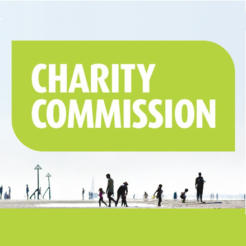The Charity Commission has set up a “rapid response case handling system” to follow up on concerns reported to it about charities’ campaigning activities, it announced today.
It said the unit would evaluate cases involving charity campaigning in the run-up to the election. It also said that following the election, it will review those cases and decide whether it may need to change CC9, its guidance on charity campaigning.
A spokeswoman for the Charity Commission told Civil Society News that the regulator hopes the unit will give charities and the public “confidence as to what is, and what is not acceptable”.
“This is especially important in light of the passing of the Transparency of Lobbying, Non-Party Campaigning and Trade Union Administration Act,” the spokeswoman said.
“Findings from our election case work, along with the impact of the Lobbying Act, will have to be reviewed after the election,” she added.
“Such a review, and the consideration of other issues relating to the current guidance, may or may not recommend changes to the guidance. If we do consider revisions should be made to CC9, we will say so publicly and consult widely.”
Speaking yesterday at a meeting of the All Party Parliamentary Group on charities, Paula Sussex, chief executive of the Charity Commmission, said that the regulator would review its campaigning guidance CC9, after the election.
“We will, just after the election, review the current guidance and we are particularly looking in the run-up to the election, at an awful lot of test cases,” she said. “It’s going to be a tightly fought election. So we are going to look at more evidence and test cases to look at the way the current guidance is working.”
In response to her comments, Acevo expressed concerns this morning at the possibility of amendments being made to CC9.
Sir Stephen Bubb, chief executive of Acevo, told Civil Society News: “Our sector will be alarmed by this suggestion. The Charity Commission’s previous statements on the Lobbying Act and campaigning suggest it’s hard for charities to trust them to have the sector’s free speech in mind if the rules are to change.
“We will strongly resist any attempt to water down CC9 and weaken charities’ ability to speak out in a free society.”
Sir Stuart Etherington, chief executive at NCVO, told Civil Society News: “Within the context of recent media and political comment, NCVO’s members regularly tell us of their concerns that their right to campaign is under threat. They also tell us that CC9 is useful and informative and that it strikes the right balance between protecting legitimate campaigning and guarding against undue influence.
“We think CC9 is fit for purpose and that it has stood the test of time. NCVO and its members look forward to working under this guidance in the future.”
Media scrutiny
Sussex also expressed her disappointment yesterday at media scrutiny of the Charity Commission’s investigations into several British Muslim charities. She said that ill-informed comments on the state of the sector are taking the focus away from other “vital issues”.
“On a bleak day it makes me sad that oxygen is being taken up by these topics when oxygen needs to be going into vital issues in the sector,” she said. “I don’t have a magic wand. I think possibly we in the Commission, and also I’m sure it is the same with charities, need to get out and talk more to people.
“We get a momentous amount of criticism that is entirely unfounded about being anti-Muslim. It's completely untrue. The most important thing we’ve done is gone to the major Muslim charities to sit and spend some hours with them and tell them that this is completely untrue. I think this is perhaps important and with all media scrutiny on charities as well as ourselves, it’s a question of going out and saying this is not the case."









